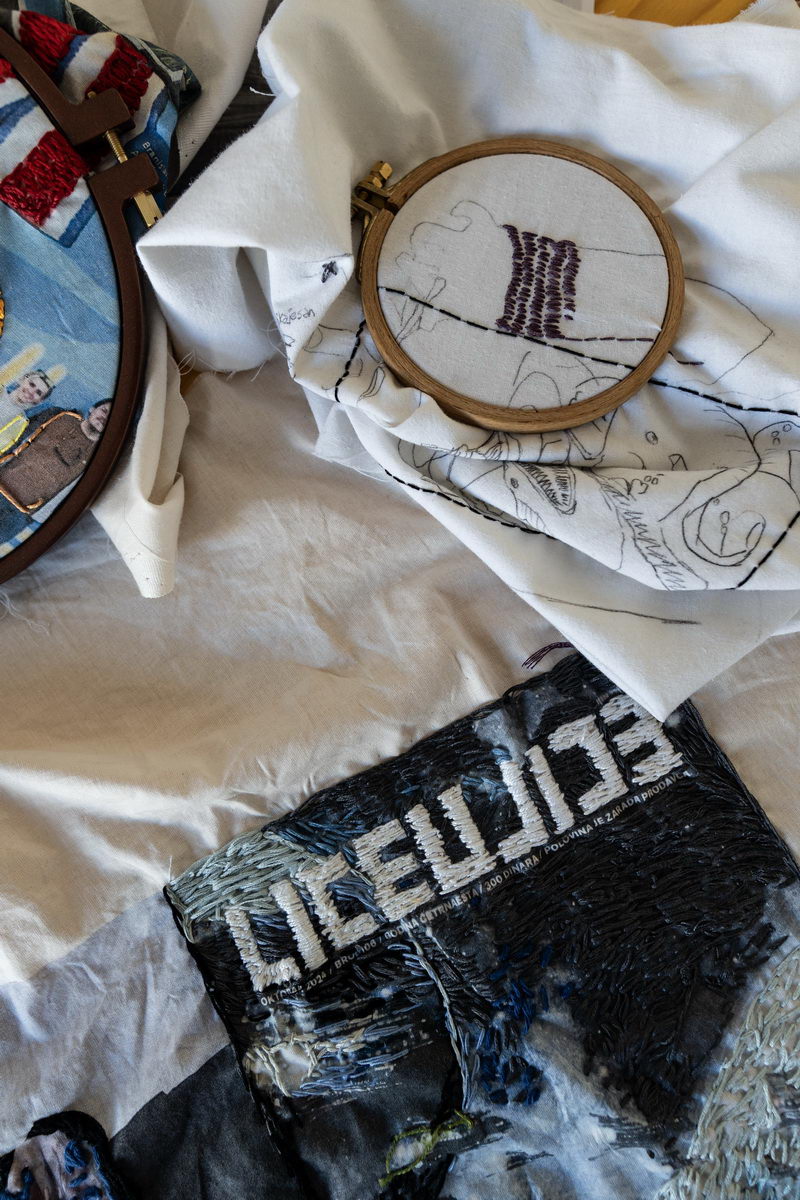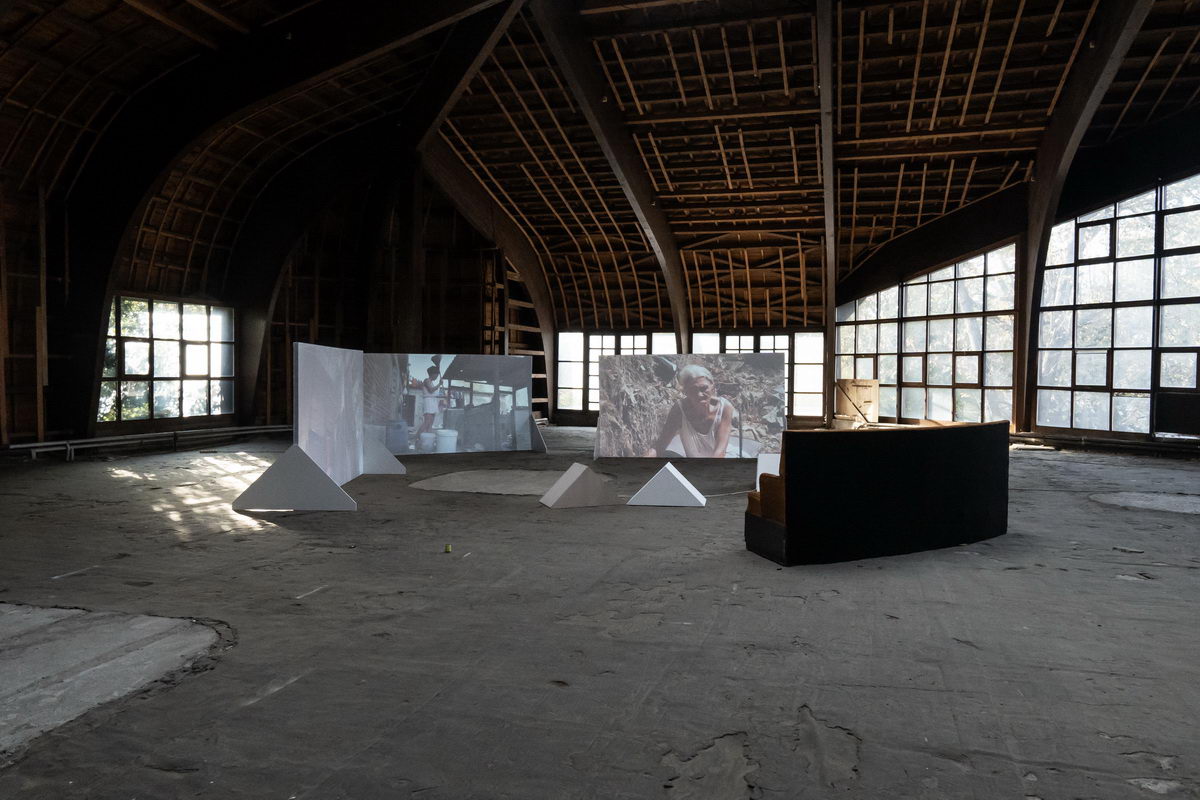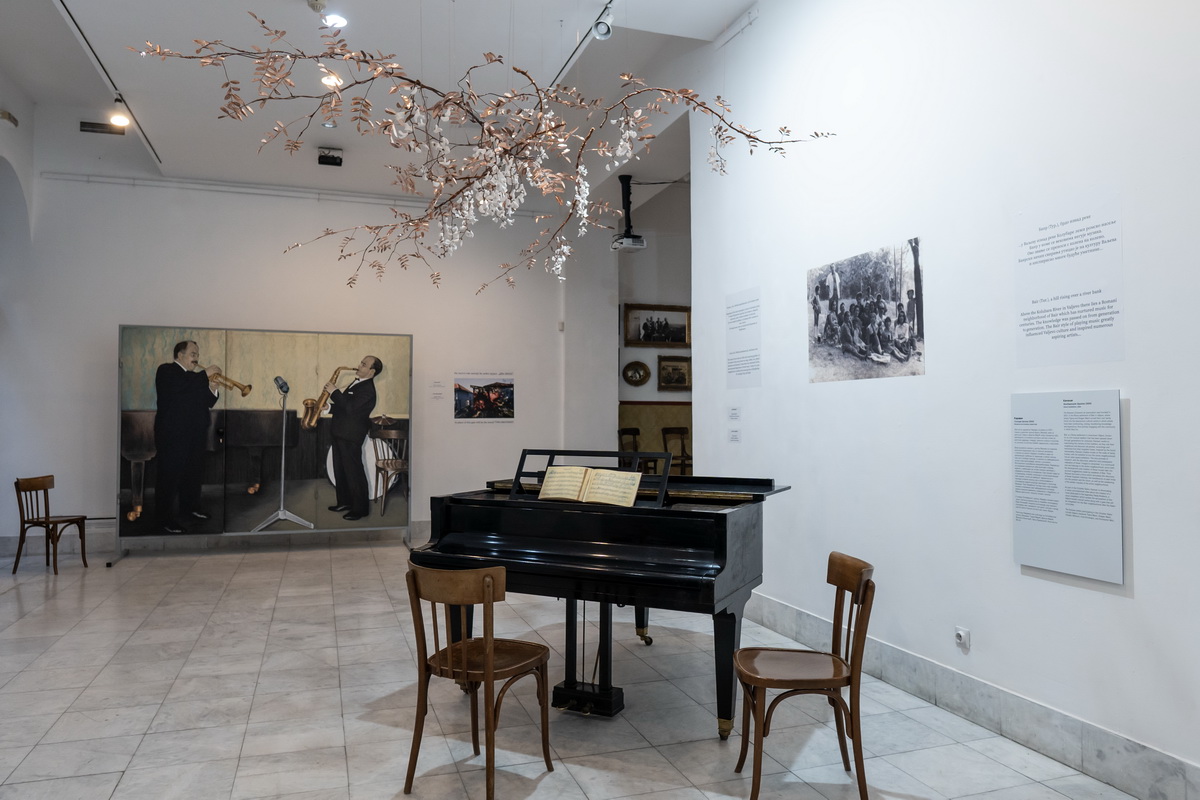OCTOBER SALON 2024 – WHAT'S LEFT?
MAU curators in HOPE IS A DISCIPLINE
The anniversary, 60th October Salon was opened at the Museum of African Art on October 20th, the Day of the Liberation of Belgrade, and lasted until December 1st, 2024. A special segment, Hope is a Discipline conceived by Lina Džuverović, along with MAU curators Ana Knežević and Emilia Epštajn, showcased works by artists and collectives, including: Adrián Melis Sosa, Darinka Pop-Mitić, doplgenger, And Others, Jelena Savić, Karavan, Kathrin Böhm & Jelena Micić, Kiluanji Kia Henda, Mwana, Milica Dukić, Milica Ružičić, and the Feminist Duration Reading Group.
Drawing on the slogan of Afro-American activist Mariam Kaba, „Hope is Discipline,“ as well as the legacy and social values of the Non-Aligned Movement, the curators collaborated with artists, associations, and grassroots initiatives both within and outside the cultural sphere to present art as connective tissue in fostering solidarity and mutual support. Artists and collectives used their working processes, exhibition opportunities, and discursive programmes to explore the potential of subtle micropolitical artistic acts as mechanisms for confronting current exploitative and corporate takeovers of life, repressive and harmful political trends, and ecological issues.
It is particularly important to highlight that, as a curatorial choice, the Museum of African Art participated in the October Salon for the first time, not only as an exhibition space but also through the concept itself, the selection of works and artists, the themes, and messages being conveyed, as well as through intense communication with the museum's permanent collection and the heritage it preserves. This created a special and unique connection with the October Salon, the most important contemporary art event in our country. Also, as a result of this fundamental connection and idea based on the concept Hope is Discipline, artworks were showacased and events organised in several gallery and exhibition spaces in the very center of the city: the FLU, SULUJ, ULUS, and Artget galleries.
On Sunday, December 1st, at the Gallery of the Faculty of Fine Arts, the awards for the 60th October Salon were presented, officially marking the end of the event after six weeks. Three art installations exhibited as part of Hope is Discipline won the main, second, and special awards of the October Salon, which represents a significant achievement.
The jury, consisting of Darka Radosavljević, art historian, Ana Adamović, artist, and Simona Ognjanović, art historian, awarded prizes for the three best works of the 60th edition of the October Salon.
Excerpt from the jury's expose:
With the special award, the jury symbolically aimed to equally highlight and support two important examples of artistic initiatives and practices that have contributed to the visibility of some of the key themes of this year's October Salon in different ways. On the one hand, the work of Milica Dukić –Textile Newspapers – realised in collaboration with Liceulice enabled the creation of temporary spaces for intense exchange mediated by collective artistic production, in which members of various artistic and non-artistic communities participated at this Salon. On the other hand, the authorial team consisting of Lidija Delić, Marija Šević, Nemanja Nikolić, and Nina Ivanović, with their artistic initiative and intervention in public space called Spaces for Work, once again focused attention on the decades-long issue of the local artistic community: the lack of organised workspaces, which is just one of the many indicators of the absence of systemic support in solving the structural problems that artists and art associations face.
Milica Dukić, Textile Newspapers in cooperation with LiceUlice,
SULUJ gallery, photo: Emma Szabó
The second prize was awarded to the artist from Cuba, Adrián Melis Sosa, for his sound-performative action documented as a video work titled Tales from the Mountaintop, which was exhibited in the Museum’s dome. In addition to this, two more works by the same artist were presented at the Salon (ULUS gallery), which testify to the continuity of the artist's interest where the boundaries between art and everyday practices often become completely porous. Melis identifies neuralgic points of contemporary society and uses them as starting points for clear and simple initiatives, which we witness in the video works presented at this year's exhibition. Almost on the verge of the ethical, the actions initiated by the artist through his works convincingly raise questions about the meaning and purpose of labour in the capitalist system, the limits of solidarity, and the possibilities of rebellion in our deeply dysfunctional world.
Adrian Melis, Tales from the Mountaintop,
The Museum of African Art, photo: Emma Szabó
The main Salon prise was awarded to the work Gentlepeople Gypsies by Karavan collective from Valjevo, which stood out as an exceptional example of artistic engagement, primarily focused on the direct preservation of the rich musical heritage of the Roma settlement Bair in Valjevo. Through highly personal and direct work with the local community, which they are a part of, as well as through collaboration with other artists and organisations in the realisation of joint activities, the artists and initiators of this group, Tijana and Dragan Marić, actively create socially and artistically compelling forms, among which the murals on the houses in Bair are particularly notable. These murals were created based on family archives of those who live in these houses today. Also of great importance are the regular artistic-educational workshops held in the Marić family home, which are also intended for the local community. In light of current events, which are becoming more radical by the day, and in which it is impossible to predict “what remains,” or rather, “what will remain” of the cultural, artistic, and historical heritage of the society we live in, where it is actively and illegally destroyed and alienated, it seems of invaluable importance to highlight the practice of Karavan, which not only demonstrates a purposeful form of memorising the past and heritage as a common good, but also does so by affirming the principles of cooperative work and action, where the artistic and non-artistic communities constructively and directly intersect.
Karavan, Gentlepeople Gypsies,
ULUS gallery, photo: Emma Szabó
In addition to the main awards, the Belgrade Cultural Centre's (KCB) award was also presented at the FLU Gallery. The KCB jury, consisting of the Centre’s art editorial team – art historians and curators Senka Ristivojević, Svetlana Petrović, and Vladimir Bjeličić – declared the Peruvian artist Daniela Ortiz the winner of the Belgrade Cultural Centre Award. Ortiz's installation Decolonized Museum was exhibited at the Museum of African Art during the Salon and was the central point of two workshops held on November 28th and 29th. Ortiz is one of the artists featured in the concept of the special segment Trace by Lorenzo Balbi and Dobrila Denegri.





















